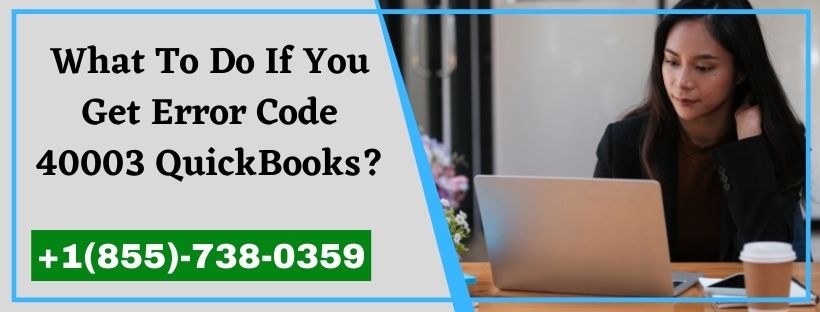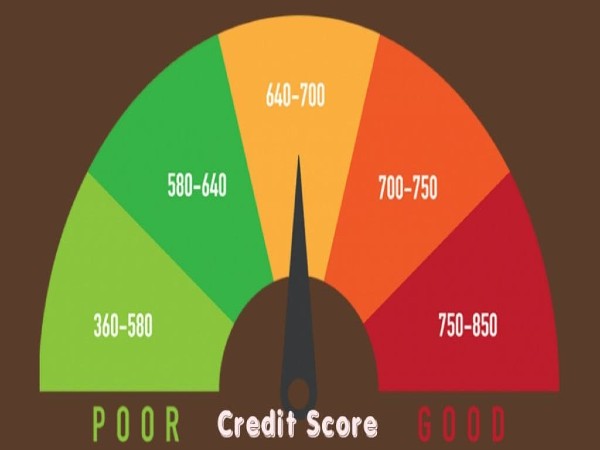How to deal with personal tax when paying and receiving annuity
My country’s endowment insurance system mainly consists of three parts: basic endowment insurance, supplementary endowment insurance, and personal savings endowment insurance. Among them, supplementary pension insurance includes enterprise annuity and occupational annuity.
Occupational annuity refers to the supplementary endowment insurance system established by government agencies and institutions and their staff based on participating in the basic endowment insurance of government agencies and institutions.
Enterprise annuity refers to the supplementary pension insurance system established independently by the enterprise and its employees based on participating in the basic pension insurance following the law.
The “Measures for Occupational Annuity of Government Institutions and Institutions” (Guobanfa [2015] No. 18) clarifies that the expenses required for occupational annuity shall be jointly borne by the unit and individual staff members, and all the payment shall be included in the personal account of the occupational annuity. Both the unit payment and the individual payment are included in the personal account of my occupational annuity. The income from the investment and operation of the occupational annuity fund shall be included in the personal account of the occupational annuity according to the regulations.
The “Measures for Enterprise Annuity” (Order No. 36 of the Ministry of Human Resources and Social Security and the Ministry of Finance) stipulates that the expenses required for enterprise annuity shall be jointly paid by the enterprise and individual employees. The enterprise annuity fund is fully accumulated, and an individual account is established for each employee participating in the enterprise annuity, which is invested and operated following the relevant state regulations. The investment and operation income of the enterprise annuity fund shall be incorporated into the enterprise annuity fund.
The contribution rate of the occupational annuity is fixed, the unit is 8% of the contribution base, and the individual is 4% of the contribution base; while the contribution rate of enterprise annuity is flexible, which is determined by the enterprise and employees within the specified range. No more than 8% of the total wages of the employees of the enterprise. The total contributions of the enterprise and individual employees shall not exceed 12% of the total wages of the employees of the enterprise.
1. Personal income tax treatment of supplementary pension insurance
The Reply of the Ministry of Finance and the State Administration of Taxation on Issues Concerning Individual Income Tax (Cai Shui [2005] No. 94) stipulates that the purchase of commercial supplementary endowment insurance for individual employees, etc., should be regarded as the “wage, salaries” of individual income tax when going through the insurance procedures. Individual income tax shall be paid by the provisions of the tax law; if the insurance is surrendered due to various reasons, and the individual has not obtained actual income, the individual income tax that has been paid shall be refunded.
2. Annuity deferred tax policy
Annuity deferred taxation means that no individual income tax is temporarily levied in the annuity payment link and the investment income link of annuity funds, and the tax liability is deferred to the link when the individual receives the annuity.
In December 2013, to promote the development of my country’s multi-level old-age insurance system, based on studying and drawing on the common practices of developed countries, by the relevant provisions of the Individual Income Tax Law, the Ministry of Finance, the State Administration of Taxation, and the Ministry of Human Resources and Social Security jointly issued a The “Notice on Issues Concerning Personal Income Tax on Enterprise Annuities and Occupational Annuities” (Cai Shui [2013] No. 103) has issued a policy of deferred taxation of personal income tax on enterprise annuities and occupational annuities. In December 2018, by the relevant provisions of the newly revised Individual Income Tax Law, the “Notice of the Ministry of Finance on the Linkage of Preferential Policies After the Revision of the Individual Income Tax Law” (Cai Shui [2018] No. 164) provides a measure of the individual income tax when the individual receives it. The policy has been adjusted appropriately.
(1) Personal income tax treatment when paying enterprise annuity and occupational annuity
①Enterprises and public institutions (hereinafter collectively referred to as “units”) shall, following the measures and standards stipulated by the relevant policies of the state, pay the enterprise annuity or occupational annuity (hereinafter collectively referred to as “annuity”) for the unit payment part of the enterprise annuity or occupational annuity (hereinafter collectively referred to as the “annuity”) for all employees who hold office or are employed in the unit. When entering a personal account, individuals do not pay personal income tax for the time being.
②The part of the annuity personal contribution paid by an individual by the relevant national policies shall be temporarily deducted from the current taxable income of the individual within the standard of 4% of the tax base of the paid salary.
③The part of the annuity unit contributions and individual contributions paid more than the standards specified in the above items ① and ② shall be incorporated into the current salary and salary income of the individual, and the individual income tax shall be calculated and collected according to law. Taxes shall be withheld and paid by the unit that establishes the annuity and shall be declared and paid to the competent tax authority.
④The tax base for the individual payment salary of the enterprise annuity is the average monthly salary of the person in the previous year. The average monthly salary is calculated according to the items listed in the total salary statistics stipulated by the National Bureau of Statistics. The part of the average monthly salary that exceeds 300% of the average monthly salary of the employees in the previous year in the districted city where the employee works shall not be included in the tax base of the individual payment salary.
The tax base of the salary paid by the individual for an occupational annuity is the sum of the employee’s post salary and salary scale salary. The part of the sum of the employee’s post salary and salary scale salary that exceeds 300% of the employee’s average monthly salary in the previous year in the districted city where the employee works shall not be included in the tax base of the individual payment salary.
Special Note:
Article 13 of the new “IIT Law Implementation Regulations” clearly stipulates that the “Individual Income Tax Law” stipulates that “other deductions determined by the law” can be deducted from the comprehensive income of residents, including individual payment of enterprise annuities that comply with state regulations, Occupational annuity. Therefore, some people believe that from January 1, 2019, for the enterprise annuity and occupational annuity paid by individuals by the “Enterprise Annuity Measures” and “Organization and Institution Occupational Annuity Measures”, they can be calculated and paid in the comprehensive income. The full amount can be deducted. It is no longer subject to the regulations of Caishui [2013] No. 103, and can only deduct “the part that does not exceed the 4% standard of the tax base of the salary paid by me” from the amount of income.
However, Caishui [2018] No. 164 document does not make a clear adjustment to this provision, and taxpayers and deduction obligors are advised to pay more attention to the subsequent adjustment provisions in this regard.
(2) Individual Income Tax Treatment of Income from Investment and Operation of Annuity Funds
When the income distribution of annuity fund investment and operation is included in the personal account, the individual does not pay personal income tax for the time being. That is, in the annuity investment process, when the income distribution from the investment and operation of the enterprise annuity or occupational annuity fund is included in the personal account, no personal income tax will be levied for the time being.
(3) Personal income tax treatment for receiving annuity
According to the regulations of Caishui [2018] No. 164, after January 1, 2019, the individual income tax treatment for receiving annuities is as follows:
① Receipt of retirement age
If an individual reaches the retirement age stipulated by the state, and the enterprise annuity and occupational annuity are received to meet the provisions of the Caishui [2013] No. 103 document, they will not be included in the comprehensive income, and the tax payable will be calculated in full separately. Among them, the monthly tax rate table shall be used to calculate and pay the tax; the quarterly payment shall be calculated and taxed according to the monthly tax rate table; the monthly tax rate table shall be applied to the monthly payment amount; the comprehensive income tax rate table shall be used to calculate the tax payment.
The method of evenly apportioning the monthly tax as stipulated in the Caishui [2013] No. 103 document will no longer be implemented.
②Get annuity in advance according to law, such as going abroad to settle down
Although an individual has not yet reached the retirement age to go through the retirement procedures, he/she has settled abroad, the funds in his occupational annuity or enterprise annuity personal account can be paid to him in one lump sum according to his requirements. When a staff member dies during his employment, or when an employee or retiree dies, the balance of his occupational annuity and enterprise annuity personal account can be inherited.
The comprehensive income tax rate table shall be applied to calculate and pay taxes on the annuity personal account funds received by an individual in one lump sum due to his departure for settlement, or the annuity personal account balance received in one lump sum by the designated beneficiary or legal heir after the death of the individual.
③Other reasons to receive an annuity in one lump sum
For individuals who receive funds or balances in an annuity personal account at one time except for the above-mentioned special reasons, the monthly tax rate table shall be used to calculate and pay taxes.
④ When an individual receives an annuity, the tax payable shall be withheld and paid by the trustee on behalf of the trustor and entrusted by the trustee. The annuity account administrator shall promptly provide the custodian with the individual annuity payment and the corresponding individual income tax details. The custodian shall, according to the instructions of the trustee and the information provided by the account manager, calculate and withhold the tax payable for the current annuity treatment received by the individual by the regulations, and report to the competent tax authority at the place where the custodian is located.
⑤ Units and annuity custodians that establish annuity plans shall, by the relevant provisions of the Individual Income Tax Law and the Tax Collection and Administration Law, implement detailed declarations with full withholding for all employees. The trustee is responsible for coordinating the relevant managers to handle withholding declarations and provide relevant materials to the tax authorities following the law.





